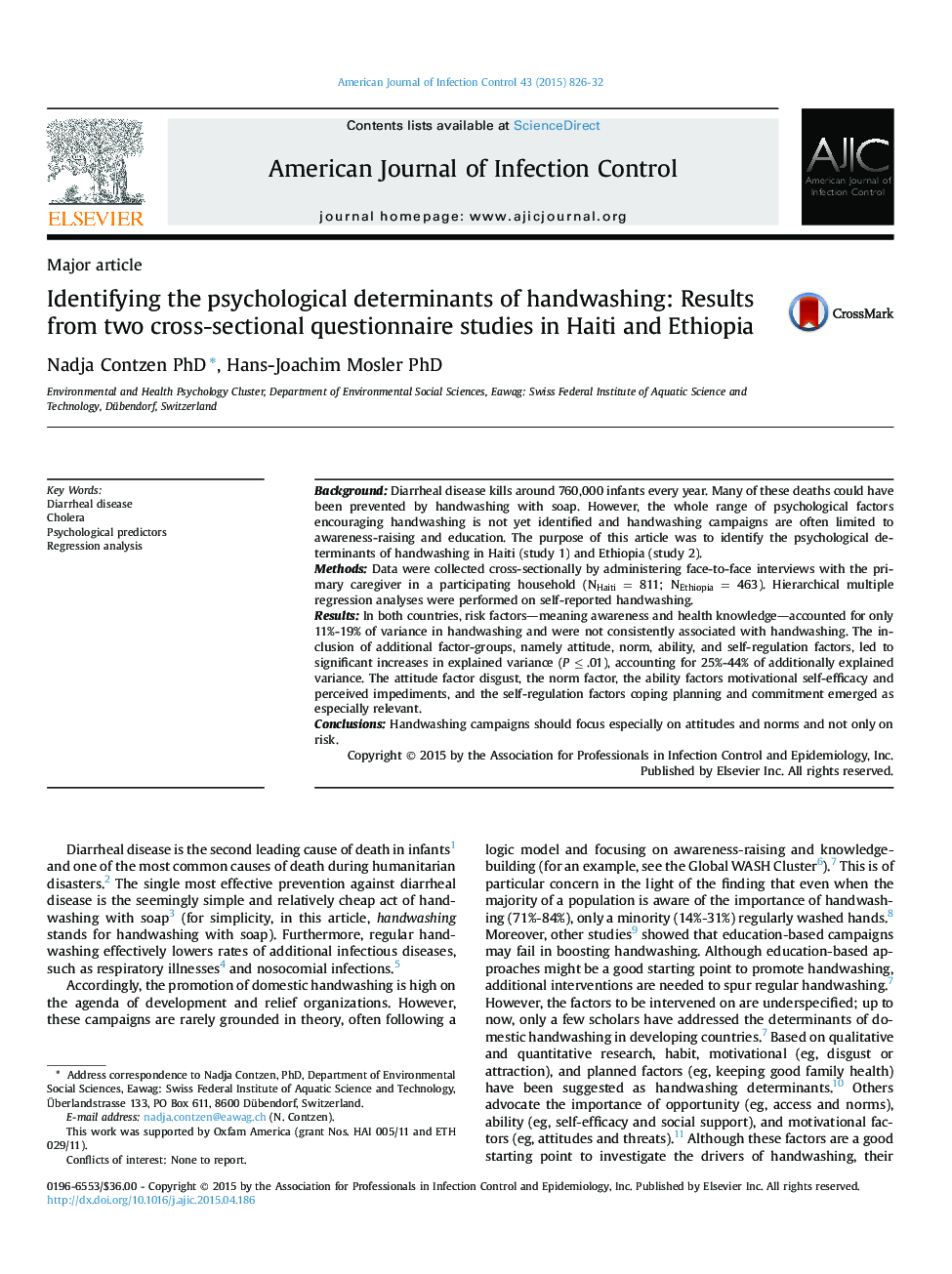| Article ID | Journal | Published Year | Pages | File Type |
|---|---|---|---|---|
| 5866607 | American Journal of Infection Control | 2015 | 7 Pages |
â¢The psychological determinants of handwashing in Haiti and Ethiopia were specified.â¢Awareness and health knowledge explained only 11-19% of the variance.â¢Further factors accounted for 25-44% additionally-explained variance.â¢Among the most relevant factors were the attitude factor disgust and social norms.â¢Handwashing campaigns should focus especially on these factors.
BackgroundDiarrheal disease kills around 760,000 infants every year. Many of these deaths could have been prevented by handwashing with soap. However, the whole range of psychological factors encouraging handwashing is not yet identified and handwashing campaigns are often limited to awareness-raising and education. The purpose of this article was to identify the psychological determinants of handwashing in Haiti (study 1) and Ethiopia (study 2).MethodsData were collected cross-sectionally by administering face-to-face interviews with the primary caregiver in a participating household (NHaiti = 811; NEthiopia = 463). Hierarchical multiple regression analyses were performed on self-reported handwashing.ResultsIn both countries, risk factors-meaning awareness and health knowledge-accounted for only 11%-19% of variance in handwashing and were not consistently associated with handwashing. The inclusion of additional factor-groups, namely attitude, norm, ability, and self-regulation factors, led to significant increases in explained variance (P ⤠.01), accounting for 25%-44% of additionally explained variance. The attitude factor disgust, the norm factor, the ability factors motivational self-efficacy and perceived impediments, and the self-regulation factors coping planning and commitment emerged as especially relevant.ConclusionsHandwashing campaigns should focus especially on attitudes and norms and not only on risk.
